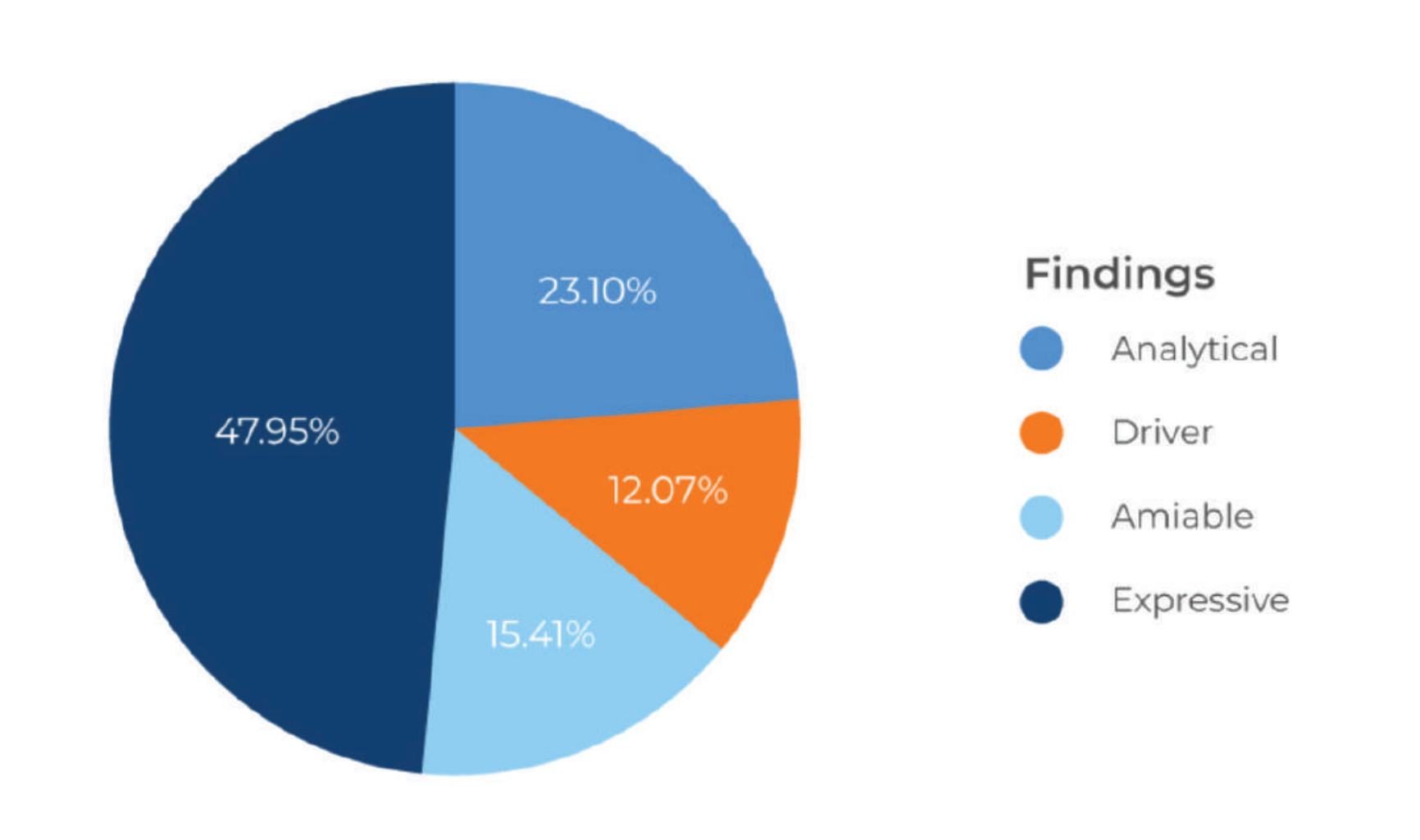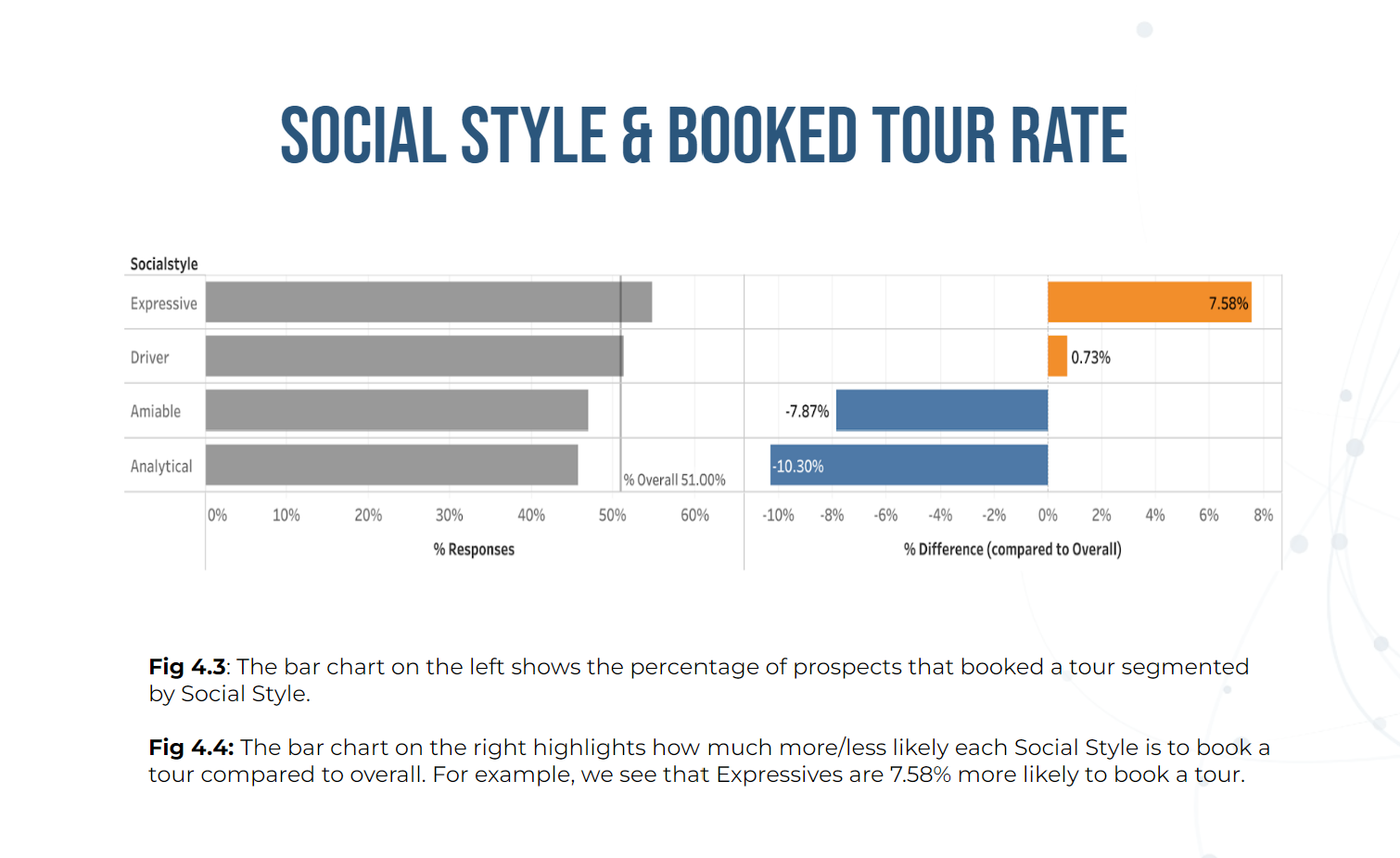“It was an impulse buy,” I lied as I slipped an arm into my new forest green zip-up varsity jacket with black trim.
“You sent me four pictures from the fitting room,” said my friend, in immediate recognition of my self-delusion. “Plus made me go with you to the store.” Okay. Not impulsive per se.
“I knew you’d buy it when you heard the return policy.”
What? Absurd! I am a fun, unpredictable imp! I don’t ALWAYS do any one thing, let alone something so reasoned as to make a purchase based on a flexible return policy after I get the opinion of a loved one. Except okay, when I think about it, in the case of almost every decision I’ve ever made.
While we’re all one-of-a-kind special unique treasures (except maybe those people with more than 15 items in the express line at the grocery store), we tend to behave in predictable ways based on personality type. This is especially true when it comes to buying decisions. I’m an “Amiable” style which, as my friend so rudely (accurately) noticed, means I tend to need time to make a purchase decision, I value the input of others and I am comforted by a guarantee. Businesses and organizations that speak to these needs tend to be where I spend my time and money.
In a broad sense, we can be categorized into four basic “Social Styles”:
- Analytical: Serious and more exacting
- Driver: Strong-willed and more emotionally controlled
- Amiable: Easy-going and more supportive
- Expressive: Outgoing and more dramatic
(If it were up to me there would be a fifth category for those grocery store anarchists, but the science does not yet bear this out and I humbly follow the experts.)
These “Social Styles” largely characterize behavior and the way we approach a situation. This is especially relevant for interpersonal communication. For EDU marketers, when you understand how best to interact with and serve prospective students’ innate communication preferences, it can be a game changer in the Admissions process.
The Research Insight That Can Fill Your Tour Calendar
Enrollment Resources recently published findings from extensive EDU market research that included data from over 250,000 prospective career education students across North America. As part of the research, prospective students from a wide variety of program disciplines completed a personality traits questionnaire where they rate how strongly they self-identify with various attributes, for example, whether they consider themselves more outgoing or reserved, more cooperative or competitive. Based on their responses, each prospect was assigned to one of the four “Social Styles” mentioned above.
Below is a breakdown of the cumulative results of the “Social Styles” section of the research:

What These Results Mean For Your Admissions Team
Results of this research show that the majority of prospective students, almost 48%, were categorized as “Expressive”. Individuals within this “Social Style” tend to be outgoing and relate well with others. The majority of Admissions professionals also tend to be “Expressives” since the nature of the role favors individuals with strong communication skills who thrive in an interactive, social setting. Individuals who share a “Social Style” tend to relate well with one another, which is great news in the case of almost half of career school prospects in this case.
The next largest group, at just over 23%, were identified as “Analytical”. These individuals favor logic and hard data in decision making, which can represent a possible disconnect between almost one quarter of student prospects and Admissions. Individuals with an “Analytical Social Style” are less concerned with rapport and personal stories than individuals in other “Social Style” groups, which potentially puts these prospective students at odds with the default communication style of “Expressive” Admissions Representatives.
For example, an Analytical person takes a lot longer to come to a buying decision than an Expressive. Analytical types will:
- Collect Concrete Data
- Comparison Shop
- Mull Over Pros and Cons Lists
To an “Expressive” Admissions Advisor, “Analytical” prospective students may seem non-committal about coming in for a tour or setting an appointment.
Without empathy for the needs of prospects with different “Social Styles”, the “Expressive” Admissions Advisor naturally relies on conversation techniques that fail to address some prospect’s immediate concerns and may even make prospects uncomfortable. For example, when an “Analytical” prospect opts not to commit to a tour right away, many Admissions Advisors read this as disinterest and let the lead go unserved, when the reality is that “Analytical” prospects need a little more information, reassurance, and patience to comfortably move to the next step.

As shown in the table above, “Analytical” individuals are just over 10% LESS likely to book a tour, compared to the average of all “Social Styles”. For these individuals, the in-person walk-through holds less immediate importance compared to personal research. For these prospects, the decision cycle can be longer. Admissions Professionals who show patience and are open to a longer interaction can provide good service to these prospects and will ultimately help more students through to successful enrollment.
The research findings around tour rate suggest that lead-to-enrollment conversion rates are influenced by prospects’ “Social Styles”.
Opportunities to better serve prospective students and ultimately boost enrollment exist for schools that are able to subtly adapt processes to serve the diverse needs of prospects across “Social Styles”.
So…How Do You Know What Social Style a Prospect Is?
Most experienced Admissions Professionals have practice reading an individual and reacting in real-time to the energy and personal communication style of that person. But that type of assessment takes time, a resource in high demand these days, especially in the often all too short window an Admissions professional has to connect with an interested prospect.
What if you could know, with relative certainty, what “Social Style” a prospect is and how they prefer to interact BEFORE you reach out to them?
Enrollment Resources’ innovative EDU inbound lead capture platform Virtual Adviser includes the Career Training Readiness Pathway, the lead generation and qualification tool proven to boost overall leads, increase contact rates and aid enrollment. Every lead that comes in through the Career Training Readiness Pathway includes the opportunity for the prospect to take the “Social Style” assessment and provide that valuable insight at first point of contact, before a school rep ever reaches out. Create more meaningful connections with your prospects when you’re armed with the insight to communicate with them in the way they’ll most appreciate.
Want to see more from this in-depth research? Access the Hidden Motivations of Prospective Students White Paper here.
Risk-Free Conversion Kickstart
Get an immediate boost in high-quality organic leads that enroll.
Try it Risk-Free for 90 days.
